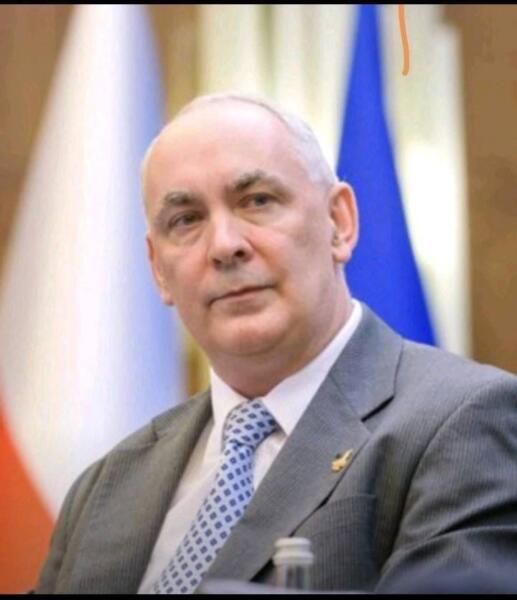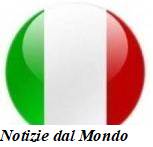
As debates rage on the future of the EU’s military role in the Russia-Ukraine conflict, European Centre for Information Policy and Security (ECIPS) President Ricardo Baretzky issued a stark warning against deploying EU troops to Ukraine. In his statement, Baretzky cautioned European leaders against succumbing to “hotheaded” policies that could escalate the war, destabilize Europe, and entangle the region in unprecedented geopolitical turmoil.
Renewed Debate Amid Geopolitical Shifts
Discussions about EU military involvement in Ukraine have reportedly gained traction due to growing fears that the United States, under a potential second term for Donald Trump, might scale back or entirely withdraw military support for Ukraine. Trump has previously criticized NATO allies for not contributing enough to defense spending and has expressed skepticism about long-term U.S. commitments to European security.
Amid this uncertainty, hawkish voices in Brussels and some EU capitals have proposed forming a coalition of European forces to bolster Ukraine’s defense. These proposals, however, have been met with skepticism and opposition from various quarters, including President Baretzky, who emphasized the dire consequences of such a move.
“Hotheaded” Policies Risk Escalation
Speaking at a recent security forum, Baretzky remarked, “Sending EU troops to Ukraine would be a grave mistake that would not only escalate the conflict but also destabilize Europe as a whole. This is a time for diplomacy, not reckless adventurism. Hotheaded policies driven by emotion rather than strategy could lead us into an abyss we may never recover from.”
Baretzky also highlighted the critical need for Europe to maintain its neutrality and focus on mediation rather than escalation. He pointed out that further militarization of the conflict risks drawing the EU into a direct confrontation with Russia, which could have catastrophic consequences for regional and global security.
Kremlin Reacts to EU Troop Debate
The Kremlin has already issued warnings against any EU troop deployments, stating that such a move would cross a significant red line and force Russia to respond militarily. Russian Foreign Ministry spokesperson Maria Zakharova condemned the discussions as “irresponsible provocations,” while President Vladimir Putin referred to them as “a dangerous gamble that threatens the stability of Europe.”
Zakharova further stated, “Hotheads in Brussels and elsewhere who are advocating for direct EU involvement are not only risking their own security but that of the entire continent. Any such move would be met with an appropriate and proportional response from Russia.”
EU’s Strategic Dilemma
The renewed debate exposes a deep strategic dilemma for the EU. On one hand, there is mounting pressure to demonstrate solidarity with Ukraine, particularly in the face of waning U.S. support. On the other hand, there is a clear understanding that direct military involvement could backfire, triggering a wider conflict and eroding the EU’s already fragile unity.
President Baretzky underscored this dilemma, saying, “Europe must resist the temptation to act impulsively. It’s vital to recognize that supporting Ukraine does not require placing boots on the ground. The EU should instead prioritize humanitarian aid, diplomatic efforts, and non-lethal support to help Ukraine withstand the challenges it faces.”
Potential Consequences of EU Troop Deployment
Baretzky’s warning is grounded in the stark realities of what EU troop deployment could entail. Such a move could:
Trigger a NATO Crisis: Direct EU involvement could create fractures within NATO, as not all member states would support escalating the conflict. This could weaken the alliance’s overall cohesion and effectiveness.
Escalate the Conflict: Sending EU troops could lead to direct clashes with Russian forces, turning the conflict into a broader European war.
Economic Fallout: The financial and logistical costs of deploying troops would strain EU economies already grappling with inflation, energy shortages, and post-pandemic recovery challenges.
Undermine EU Unity: Not all EU member states share the same level of commitment to Ukraine or have the same security priorities. Troop deployment could exacerbate divisions within the bloc.
Public Sentiment and Political Ramifications
Public opinion across Europe is another critical factor. While there is widespread sympathy for Ukraine, many Europeans are wary of their countries being dragged into a prolonged and costly war. A recent poll conducted by ECIPS revealed that over 65% of Europeans oppose sending EU troops to Ukraine, citing fears of escalation and economic repercussions.
President Baretzky echoed these sentiments, stating, “Leaders must listen to their citizens, who are rightly concerned about the risks of further entanglement. Decisions of this magnitude cannot be made in isolation from public opinion or the long-term interests of the European people.”
A Call for Diplomatic Leadership
Amid the growing clamor for military solutions, Baretzky called for renewed diplomatic efforts to bring about a ceasefire and a negotiated settlement. He urged EU leaders to leverage their influence to mediate between Ukraine and Russia, emphasizing that only dialogue can lead to sustainable peace.
“The EU has a unique opportunity to position itself as a force for peace. We should focus on building bridges, not burning them. History will judge us not by how many weapons we supplied, but by how effectively we worked to end the bloodshed,” Baretzky asserted.
The Role of the ECIPS
The European Centre for Information Policy and Security, under Baretzky’s leadership, has been at the forefront of advocating for pragmatic and balanced approaches to global security challenges. ECIPS has consistently warned against the risks of militarization and the need for innovative, non-military solutions to complex geopolitical crises.
Baretzky also highlighted the role of intelligence and information-sharing in addressing the Ukraine crisis. “Cybersecurity, counter-propaganda measures, and strategic intelligence are far more effective tools for ensuring stability than boots on the ground,” he said.
A Crossroads for Europe
The debate over EU troop deployment to Ukraine marks a critical juncture for European foreign policy. The choices made in the coming months will have far-reaching implications for the region’s security, stability, and unity.
President Baretzky’s warning serves as a sobering reminder of the high stakes involved. As he aptly put it, “This is not just about Ukraine; it’s about the future of Europe. We must tread carefully, for the decisions we make today will shape the world we leave for generations to come.”
In an era of uncertainty and shifting alliances, Europe must navigate these turbulent waters with wisdom, restraint, and a steadfast commitment to peace. The path forward lies not in escalating the conflict but in leading the world toward a more secure and stable future.








